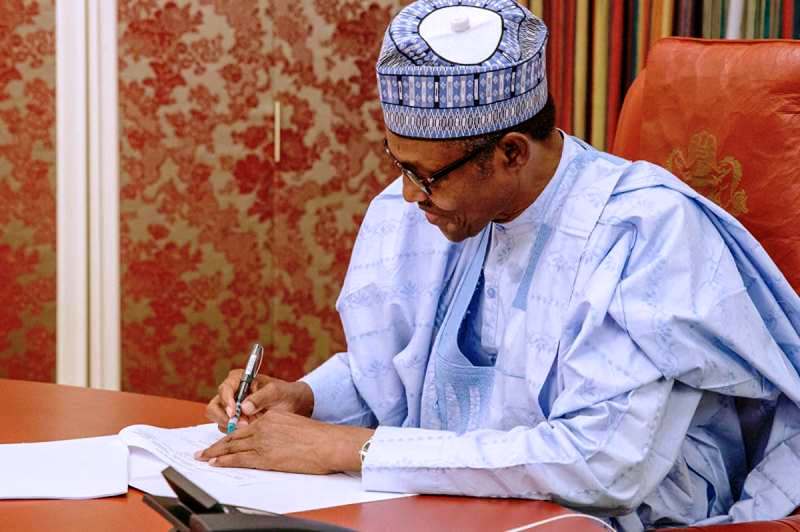As Nigeria commemorates its 60th Independence anniversary, certain issues of national importance have come to the fore, even with the Nigeria Labour Congress (NLC) and Trade Union Congress (TUC) having to suspend, at the last minute, the planned strike to protest against the pains Nigerians are passing through.
Issues ranging from the issues of fuel subsidy removal, electricity tariff hike, the suspended strike by NLC and TUC, the drums of secession, the issues of insecurity, the water resources bill, the much-awaited Petroleum Industry Bill (PIB) that was recently sent to the National Assembly (NASS) by President Muhammadu Buhari, and many others have topped national discourse.
In this explosive interview, the member representing Ukwa East/Ukwa West Federal Constituency, Uzoma Nkem-Abonta addressed these many issues besetting the country Nigeria and alluded reasons why Nigerians are now in pains, even in the President Buhari’s administration that promised change.
Q: What is your take about the strike suspended by Labour?
A: If you ask me, I think God loves Nigeria. The strike will cost us a lot of things: injuries and loss of economic activities. Nigeria is at the brink of economic collapse and if we push it further, it will get into depression or recession or whatever the economists call it.
I think that we should seek a political and economic realistic solution rather than strike. The effect of COVID-19 is enormous, untold; we cannot say it all then another self-imposed sit at home, another self-imposed quarantine, strike or whatever you want to call it, will not be too healthy for us.
I am not saying they have no justifications to embark on strike. I am not saying they are not pained enough to go on strike. But I think we can look for a middle cause. We can look for a soft landing ground. Because strike, now at this present time that we are struggling to breathe because of COVID-19 and bad governance, will not help us.
Therefore, I want to plead with the labour unions to sheath the sword. Their grievance is right. The annoyance is right. But they should not because of anger, because they are angry about confused persons who are at the affairs of the nation and throw the nation into darkness. They should be pathfinders, they should be directing, so that we can get out of the quagmire we find ourselves because of bad and maladministration.
Q: What is your take about the subsidy regime of this administration, considering the fact that former President Goodluck Jonathan tried to no avail to remove fuel subsidy in 2012?
A: Well, I do credible opposition. I am not among those that do what I call legislative rascality or even executive rascality. No. That they came now to do deregulation or increase fuel [price], I can only tell those that occupied Nigeria to look for a way and apologize to Jonathan.
They are burying their heads in shame. They used opposition then to spoil the government. I cannot behave like them. I cannot be as rascal as they were in Lagos occupying Nigeria. Shame unto them! Where are they now?
I cannot occupy Nigeria because deregulation, subsidy removal is the only thing that can put us on a sound footing. But before then, certain things must be put on the ground. So, we cannot say because of opposition, we will condemn sound economic principles. We cannot say because of opposition, we look at settings that would be useful to us and we say it’s not true.
We can only say do it in the right manner, at a proper time, with the proper settings, put in all the modules, taking into consideration the totality of all. You cannot just do one thing without considering others. It’s like somebody who suffering from appendicitis for example and you are giving that person just panadol. No. You must be able to operate. You bring in anaesthesia to kill the pain. Nobody will do a medical operation without killing the pains. Have they now killed the pains? No! You must do certain things to kill the pains of the operation. They just took Nigerians into theatre and cut us into two with not even panadol. That is why Nigerians are now in pains
So, we are saying that the government in power should look at those things that will cushion the effects that will kill the pains arising from their actions. It is a mark of insensitivity on the part of the government.
During the COVID-19, we came out, including the House to say, providers, do not even charge at all. Give the people free light. Bear in mind, is COVID over? So, what are you increasing? That is policy somersault. That shows they are confused. That shows they are not stable. That shows they did not plan before they talk before they made statements.
We agree here, including the House, say, providers, please, do not charge for now. Even DStv, MTN, all of them; we said please, come down, see what we can do. In other climes, some even paid their landlords some certain percentage for tenants not to suffer. We subsidy all until we get out of the COVID.
I am saying that the timing is ill. To do it now is as if you do not care about the suffering of the people. We are not yet out of the COVID. So, is that palliatives now, to hike it up? If they had agreed for when Jonathan did in 2012, by now the pains would have gone. We would have been reaping the benefits.
Opposition does not mean spoil things. It means put them to notice to do good. That is the opposition we are doing. That is PDP for you, and we will continue to do so. We are credible. So now, Nigerians have now known the intentions and realities of Jonathan that he meant well by doing that.
Q: What would you say about the trillions of naira spent on subsidy since the emergence of this administration, considering the fact that we were that the government was subsidizing fuel?
A: I cannot find the budget provision for subsidy. In the legislative parlance, it is extra-budgetary expenditures. Now, we are witnessing the highest subsidy regime than ever in all angles: Dollar subsidy, oil subsidy and all whatnot.
The amount claimed used in subsidy now in this regime surpasses over and above what the previous government has done on subsidy yet they say no subsidy. I do not want to say they lied. Do you know whether it was borrowed or dashed money that they use in subsidising? It could also be borrowed fund or dashed fund or a grant.
But I cannot find that amount of money in the budget provision for it. So, how did they get it? They still owe us an explanation. They should tell us where they got money to do this subsidy. Then, we will know whether they lied or not. If it turns out now that China dashed us money to do subsidy, would I hold them responsible? I will not.
Q: Nigeria is 60. Some of you were lucky to be born close to that period while some of us were born after 1960. Is there really anything to celebrate about Nigeria?
A: I always say it and believe that the big Nigeria can use our unity to grow or use our size to grow. The Westerners, from what I read, are saying, 60-year-old marriage don try. Make dem divorce since dem pikin supposed don grow by now, but by now, we do not even have pikin. We are still crawling.
At 60, we are crawling because Nigeria is overloaded. At 60 nothing to celebrate because of our structure and we need to restructure if we must move. At 60, we need to see a feasible thing that can impress us. At 60 we are battling with insecurity. At 60 we are battling economic problems. At 60 we are battling with extreme hunger. At 60 Nigeria is still listed as one of the poorest countries.
At 60 what can we: Is there good water? Is there good road? Is there electricity? At 60 we lack all the necessary things that we need. We are told life starts at 40, and expectancy calls us 60. So that means if you look at life expectancy now Nigeria has always outlived its expectancy going by that set-out standard.
Saying we are called the Federal Government of Nigeria, how many years after, we are running a unitary system of government. The centre is overloaded. That is why the vehicle Nigeria cannot move. You cannot take a Toyota Corolla and you put something that a trailer should carry; it won’t move. That is the problem of Nigeria. The way Nigeria is structured presently; it is difficult for us to move Nigeria.
Therefore, at 60 we should come down now, go back to the table and restructure Nigeria. I challenge you.
We are now in 2020. Now, you look at Nigeria in historical perspective, those 60 ago, in 1960, and look at the economic advancement, the GDP then and now, you will see that we were marching forward how many years ago. I will illustrate.
In 1983, somebody that is being paid $500 or convert that to naira then; somebody was earning N500 in 1983 it was a big money. As a Corper by the year 1989, 1990, I was earning two hundred and fifty kobos. Now that person that was earning N500 in 1983 lived well. If you convert it to dollar, dollar was at N60 to a dollar, then he was earning over N200,000. Now the person retired as a perm sec and he is earning N250,000 which is now less than $1,000; can’t you see that he was matching back for the last 30 years that he was working because what he earned then when it was N500 was now bigger than the N300,000.
In 1982, a brand new Peugeot Pan with insurance was N6,500 and they will give you one-year service free; today N6,500 cannot fill the fuel tank of a vehicle, can you see where we are getting to. In 1982 if you are found with N7,000 they will call the police for you, but a schoolboy will hold N7,000 and nobody will think anything happened. So how did we get here, from where and how do we get out of here?
So at 60, all we should do is gather, go and clean the table and start drawing, there is nothing to celebrate. It calls for solemn gathering, a call for fasting and prayer, we should go to the Eagle Square, call all the pastors and bishops and imams and pray for Nigeria for a change and then look for how to shed the excess load we are carrying, Nigeria is overloaded at the centre and that is why without FAAC or whatever they call it, some states cannot work. They need the FAAC to be able to pay salaries.
We emulate other persons, other regimes; we should apply it to us. We must decongest Nigeria so that every component of the federalism, should practice true federalism and fiscal federalism where you can grow at your pace and limit and timing.
If you go to the United States, what obtains in New York is not the same with Texas, or Maryland or Chicago, every state to their own ability or whatever. So we must review all these things for Nigeria to move on.
As of now, we are not even moving go-slow, we are stagnant, we are rolling back the hill, we need a wedge to put it and then we now remove the excess load so that can move off. If we don’t wedge it, it will roll back and get into a ditch and scatter.
So the Southwest is saying they are going on a match to ask for what? It could be their right to do the match but my plea is can we come back again and restructure Nigeria. Everybody is saying restructure; nobody has gotten the will to restructure. We need to restructure because what we have now cannot take us much.
I was speaking somewhere and I told them that this constitution has suffered several alterations because it is not home-grown, because it is not by the people, for the people. If you open the constitution it says we the people of Nigeria, was I a military man then, so how can it be we the people of Nigeria, it was by the military juntas, the supreme military council forced it on us, it is not our constitution.
And upon attaining democracy, all we should have done was to subject that constitution to a healthy plebiscite, any section that does not fly remains deleted. Every year we come and we are doing alterations, we have done first, second, third, fourth, going to the fifth alteration. So we have multiple constitution pieces here and there we must be able to put them together.
So why not subject the whole thing to a plebiscite, anyone that does not meet the standard remains out of it, that is a very clean way to do it and then we can now say we the people of Nigeria have done this by us and for us, otherwise this one was done by about 12 members of the supreme military council and some lawyers and they gave it to us and then we used it.
And there have been several reports of national conference and there were recommendations, where are the reports. Is there anything we can pick from there and work with but we need a collective Nigeria, we need a total Nigeria, we need a united Nigeria, our diversity will now be our strength if we manage it well.
I am looking forward to when we are going to have a united Nigeria, where would be strong enough to do business so that we can now be the giant of Africa. Now we are oversized people, giants are very healthy and strong; giant cannot be beaten by a small person. Ghana terrorizes us, Cameroon terrorizes us then you say you are a giant, but when small people are beating you, then you are not giant! How can you be a giant when all the small boys are beating you?
Q: Is there any way NASS can adopt this plebiscite that you talk about on this current constitution?
A: Well, what we are also doing as tradition as prescribed by this constitution is a kind of plebiscite but on representative capacity. Whatever we do is being sent to the states for the states assembly to also vote; so it is an indirect plebiscite we are doing but in a piecemeal. We pick only sections canvassed by us, debated by us, collected by us, approved by the national assembly and then sent down to states for their inputs then they will vote.
So we are the representative of the people, the state assembly is also a representative of the people but we know how independent they are with their governors and so on and that is why when they asked for local government autonomy and state autonomy then it failed. Could that be the wish of the people, no; it was the wishes of the governors then.
Therefore, what I am saying is that we should be more pragmatic and realistic in the constitutional alteration to be meaningful, to be realistic because there are a whole lot of sections that have either outlived their useful that should be amended or otherwise. I will give you a typical example.
Section 315, particularly 45, listed some items NYSC, Land Use Act, Public Complaint Commission about five items that you cannot tinker or adjust. Now in all realistic nature, the basis for NYSC is it still there, it needs some modifications, all great nations like America started it but they have already modified it, now can you modify it without the constitution, no.
Land Use Act, what do we do there; it is so stringent the way you can even alter it in the constitution, it provided another different thing in clause 9 in alteration. Can you use that now to amend the constitution, the answer is no and now we are trying to smartly amend the constitution with a bill called water resources bill.
Q: Tell us about this water resources bill, what is the controversy about?
A: For me, the controversy about water resources bill is we don’t have jurisdiction to talk about that bill, we don’t have the powers to discuss that bill, it ultra verse our rights because the content is not in the exclusive legislative list which we have cease of domain. Go to the constitution, look at 63, 64 of the exclusive list, you will see the restrictions put therefore. The Land Use Act is an existing law, not just an existing law, tied to the constitution where lands are domiciled in the state.
The water resources bill is now saying river bank, your borehole, your reservoir, the one in your pot of soup, the one in your fridge, that water belongs to the federal government then Nigeria, we now sit, we won’t even scrawl, we are trying to decongest exclusive list you are now bringing more things to the exclusive list. So when the federal government will now begin to superintend water in my village, in your village and in everywhere and so on, can’t you see that it would be cumbersome then Nigeria will be getting overloaded and overloaded?
And we are saying by virtue of these constitutional things I mentioned, I am saying that we should not even use that because it will amount to amending the constitution using law; so they should now allow us to bring out land use act from the constitution, amend it and then we can talk about whether water resources bill can come or not.
The water bill offends constitutional provisions, it offends our sensibility, it offends the federal character; federal character presupposes that the components that form the federation will have some little bit of autonomy and now you are saying the river, the waterfronts and the water banks will be administered by the federal government.
It is tantamount to saying, before they deleted some clauses, before the last session it was 3 nautical miles from the bank and I asked if you know Bar Beach very well, 3 nautical miles will get to those houses there, that means the whole VI will go. Now they said waterfront, who defines where is now the waterfront?
Will it now mean 10 feet, 10 metre, 1 km, who is the definition; it will also resort to controversy. So there is everything wrong with the water resources bill and the House must follow our rules. The Supreme Court have said it severally that where there is a prescribed rule, if you do not follow that rule, any decision reached is a nullity; you will begin the journey again.
And here I contend strongly that the rule was not followed but we will use legislative mechanism to also correct what I deemed legislative mistakes or error. Let’s concede that was an error so we are employing legislative mechanism to correct it and that is what we are going to do.
Q: People are saying the legislature of today is a rubber stamp one. How are you going to counter this when that time comes, supposing the government of the day decides to use its strength of numbers in the House?
A: If you are talking about number yes, they may have the numbers that is APC. But I want to also believe that if we are looking at legislation, lawmaking, party sentiments are not and should not be considered.
Let me also ask you, the man holding the rubber stamp is he not bordered by water; so will he stamp his death warrant? Is APC not in the north don’t they have water? We are saying good laws for the people and it is not about numbers and I am not talking about what we are going to do, I am talking about the breach in the constitution.
Can we through an Act being proposed in the House amend the constitution, the answer is no. So is the water bill not offensive to the constitution, yes it is. Is the water bill not contradicting land use act, yes it does.
So we are saying let the water bill go, let’s amend the constitution first so that it can come, if we can amend the constitution then put your bill otherwise. Open exclusive list, 63, 64, you will see that water is not on the exclusive list only to the extent of water passing through two states. The water in my village passed only my state, so you can’t say water, is not even borehole, reservoir you can draw to wash vegetable, feed animals and so on, they give you the licence of the amount of water you need.
Water is life we are told, land we are told in elementary economics is the first factor of production and now you are saying water in the land, water in the sea, water by the sea bank, water by the shore, water everywhere belongs to the federal government.
We are saying this in sympathy to the federal government, the federal government you are carrying too much load, we want to help you to take away your load so that you can run, move. We are not saying it because we don’t like the bill, we are saying it because the bill offends our constitution, the bill offends the existing laws, the bill will put too much load on the federal government, we want the federal government to move, we want to lighten their load.
Q: The PIB has defied passage and signing into law over the years. Why is it taking so long?
A: I came to parliament in 2008 and I met the PIB and I am doing 16 years now and PIB is still with us, yet we are talking about pump price, deregulation, this and that. Why are we treating symptoms of our sickness when we know the sickness, why are we treating symptoms of our sickness when we have diagnosed the main problem worrying us. If we had done PIB we won’t be worrying about pump price today, it would have been in the past.
Let me use this opportunity to plead with the federal government to take the issue of PIB seriously. I once said they should treat it as a project, complete it on time that Nigeria may move forward.
Look at other climes, the Arabs, what they have done with the oil industry, why is our own different? Look at how they have unbundled the oil sector, why is our own different?
So I plead with them that enough is enough of this joke. If they don’t want to, they should tell us that, no, no, that for life, it is a no go area. You don’t give people hope when you mean otherwise because PIB if achieved will set the thing rolling.
My fear is that the oil sector is dwindling; it is almost going, so the PIB is even late, it is of no use if the oil trend continues the way it is going and with the scientific inventions are we going to drink the oil?
So we should turn attention to serious scientific development because people are now talking about electric cars. So we should make haste while the sun is there.
If I were the government now, PIB should be in the next six months achieve it and let’s see how we can manage the oil again and then see what we can do and this piecemeal may not be good.
I want to challenge my colleagues to bring proper PIB. I want to challenge my colleagues to do, this is an executive one coming, if it does not satisfy the yearning and aspiration of the people, we get another one, consolidate it and move on.
May God in His infinite mercy grant the legislators the wisdom, the boldness, the political will to attend to this issue otherwise we would be playing the ostrich that is what we are doing now.
There is nothing wrong in having legislative-executive convenience but any marriage that is under undue influence or being forced is rape, it is no longer consensual. So we should be able to know the difference.

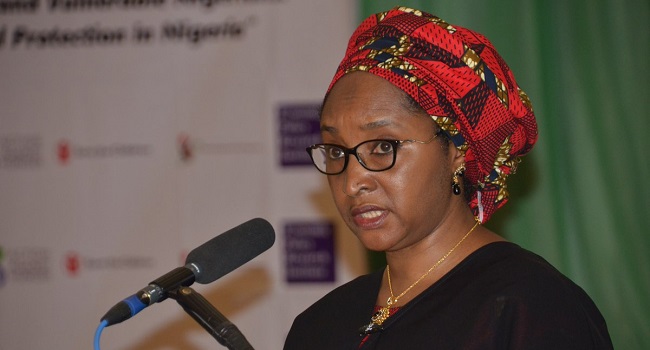
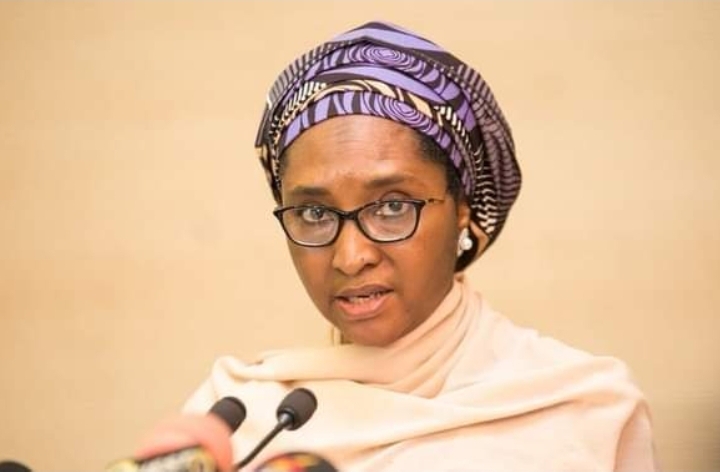

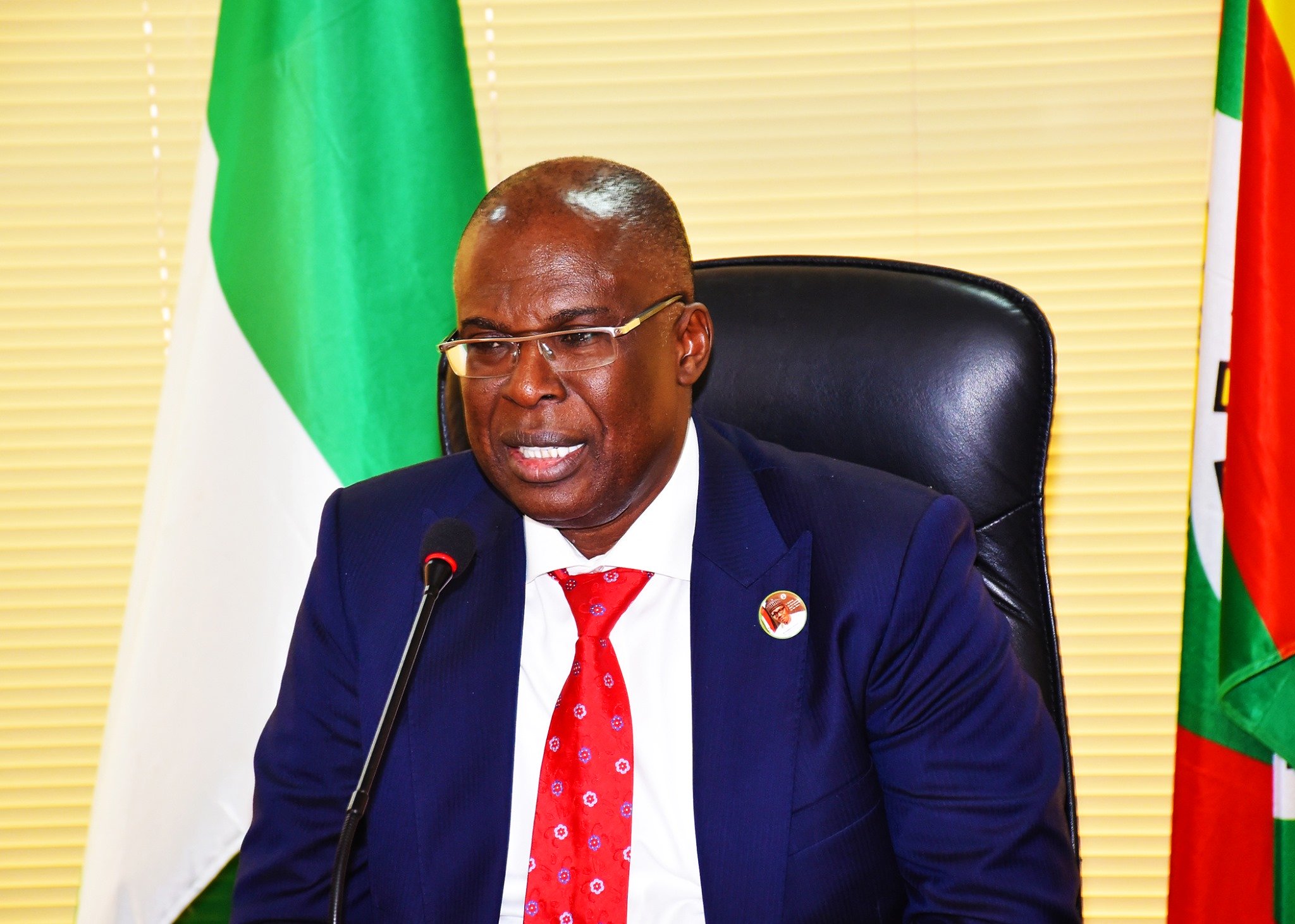
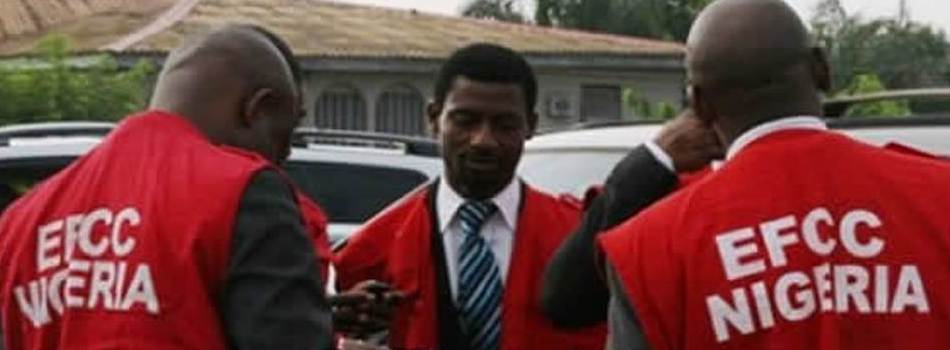
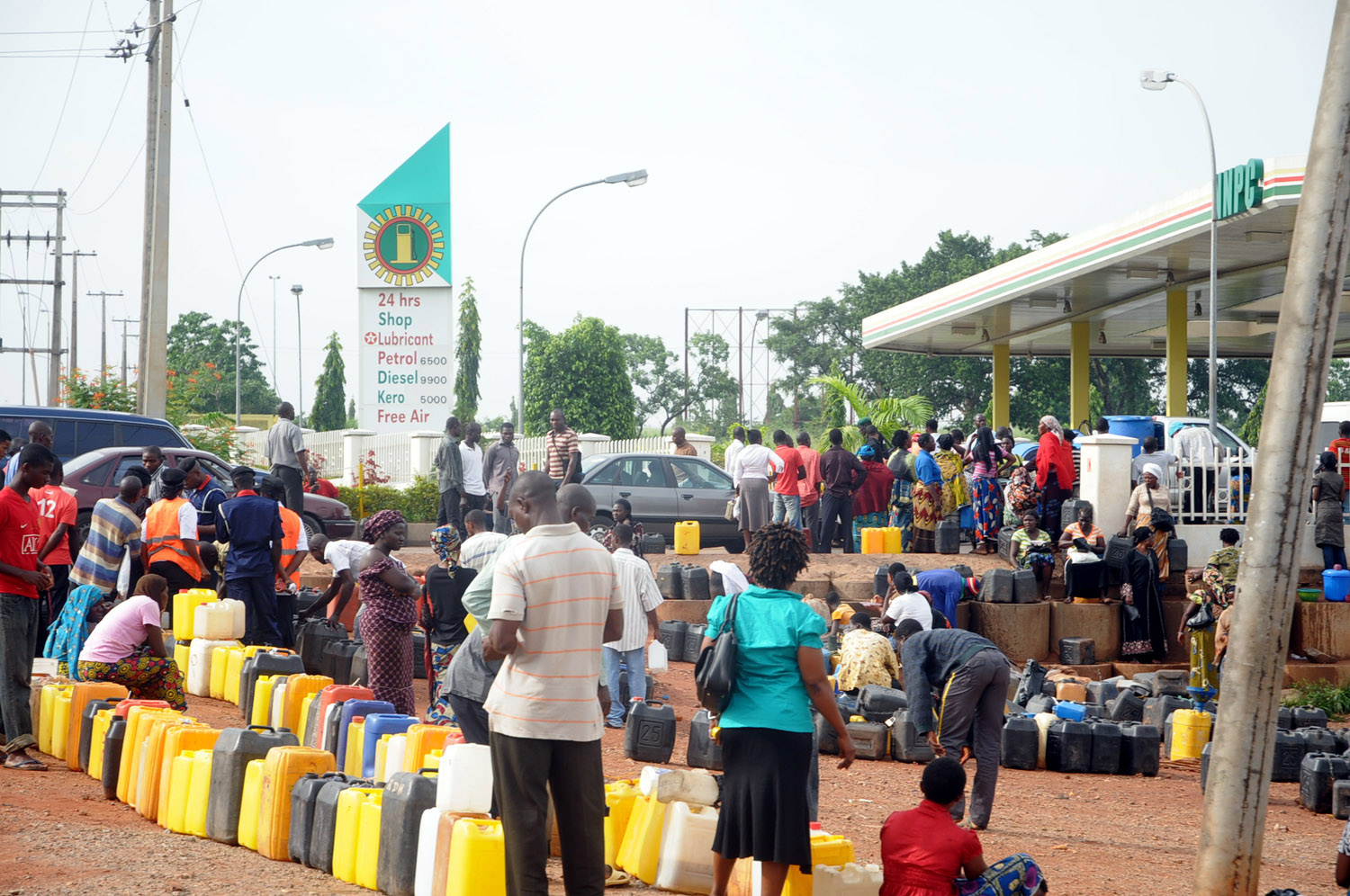
![Nigeria @60: Why Nigerians are now in pains – Rep Nkem-Abonta [INTERVIEW]](https://thenewsguru.ng/wp-content/uploads/2020/10/IMG_20200928_172013_357_1601553457648.jpg)
